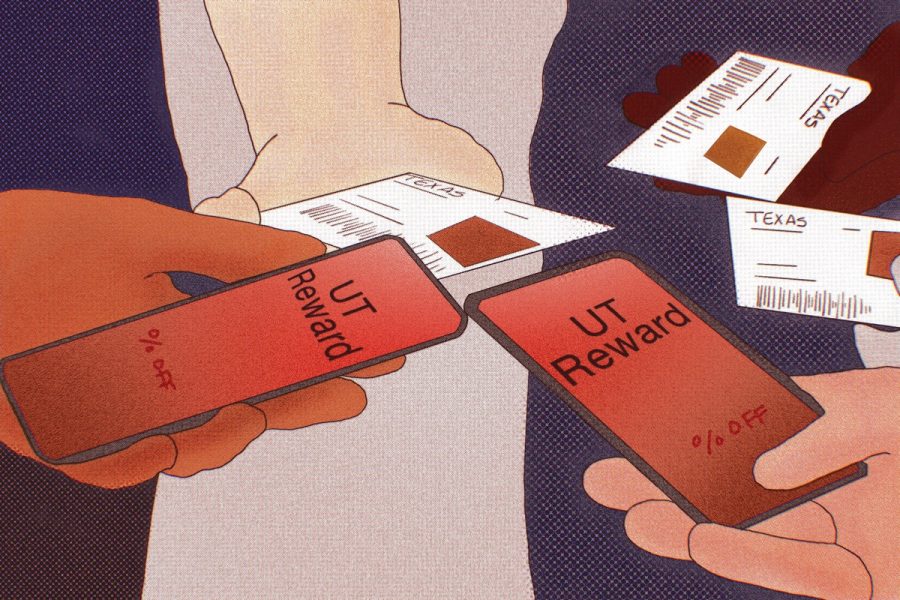Pursue a student discount partnership with Target
May 3, 2022
Inflation has recently hit a 40-year high. This means the cost of everyday expenses such as food, lodging, gasoline and even college tuition has increased dramatically. While some might be able to bear the financial burden caused by the recent surge of inflation, students aren’t likely to fall into this category.
With the cost of living in Austin continuing to skyrocket, the added financial strain of inflation is the last thing students should have to worry about.
To offer students some much needed financial relief, the University should form a student rewards program with local big-box retailer, Target.
Studio art freshman Alexandra Blount explained her thoughts on the University pursuing a partnership with Target.
“Especially since it’s on campus, right next to Dobie, I think it’s a great idea,” Blount said. “All the prices are going up with everything. People need to eat and (be able to get) the basic necessities and that’s what they get at Target. If I’m going to shop on campus, that’s where I’ll go.”
A partnership would be essential for keeping students financially above water. Since UT has sponsorships and partnerships with other major corporations, it is only fitting that the University seeks a partnership that directly benefits the lives of its students.
Blount further mentioned the impacts that inflation has had on her life.
“It’s been horrible,” Blount said. “I go home a lot and I live like four hours away, so it’s like a $50 fill-up everytime I go home. (With) food and everything else, just trying to sustain myself, I have like $100 left in my bank account.”
This isn’t just about money; this is about students’ livelihoods. The cost of receiving a university education is expensive enough. In fact, some reports maintain that the cost of college tuition and other associated fees has risen by as much as 1,200% since 1980.
While the University can’t directly control the current wave of inflation, they can potentially strike a deal with a well-known retailer such as Target.
Under the proposed partnership, students could scan their student ID cards during checkout to see if they qualify for any student discounts. For example, every 10th time a student checked out at Target, they would be eligible to receive a considerable discount on that total purchase.
This partnership would benefit students, the University and Target.
Students reap the rewards of lower prices on essential goods, the University gains another notable partner while helping its students, and Target likely draws in more student customers, leading to an increase in revenue. While the proposal could entail investments from both the University and Target, both entities are likely well equipped to make the financial commitments necessary to help students.
The proposed partnership would be far less compelling if students were the only ones suffering. However, companies across the globe, including Target, are suffering as well.
In fact, the company itself has also been negatively impacted by recent inflationary pressures. According to a report, although Target has seen an increase in sales, their profit margins have decreased. A student-centered discount program could increase sales volume in Target’s stores, helping the company fend off some of the current inflationary pressure they’re likely still experiencing.
Ultimately, it is a main function of both UT and Target’s executive teams to worry about the added costs of inflation, not students.’
Inflation is a global problem that likely isn’t going away anytime soon. However, obstacles can bring opportunity. The University and Target have a unique opportunity to partner and make a positive impact for themselves and for students.
Lazenby is an economics junior from Chicago, Illinois.



